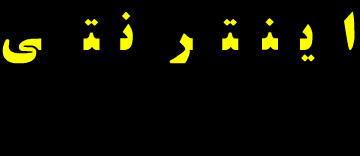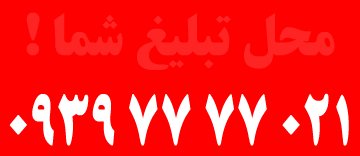به گزارش گروه سیاسی پایگاه خبری خبرآنی، هادی طحان نظیف عضو حقوقدان شورای نگهبان در نامه ای به رئیس دیوان عالی هند خواستار ابطال قانون تبعیض آمیز علیه مسلمانان این کشور شد.
طحان نظیف در نامهای به رئیس دیوان عالی هند نوشت: از همکاران محترم در دیوان عالی هندوستان انتظار میرود امکان ابطال قانون تبعیضآمیز علیه مسلمانان را فراهم آورند.
عضو حقوقدان شورای نگهبان در نامهای به رئیس دیوان عالی هند درخواست کرد که با استفاده از روشهای قانونی پیش بینی شده در نظام اساسی هندوستان امکان ابطال قانون تبعیضآمیز علیه مسلمانان این کشور را فراهم آورند.
متن کامل نامه به شرح زیر است:
بسم الله الرحمن الرحیم
جناب آقای شاراد آرویند بابده، رئیس محترم دیوان عالی هند
با سلام و احترام
یکی از مأموریتها و اهداف شکلگیری نهادهای دادرسی اساسی در نظارت قضایی بر قوانین و مقررات مصوب پارلمانها و نهادهای مقررهگذار، حمایت از حقوق و آزادیهای اساسی ملت و تضمین حقوق بشر و شهروندی آنان است. چنانکه ما و شما در دو نهاد ناظر بر قوانین پارلمان، خود را موظف میدانیم تا مانع از شکلگیری هنجارهایی شویم که حقوق ملت مورد تضییع قرار گیرد.
بخشی از اخبار و تصاویری که این روزها از هندوستان به جامعه جهانی مخابره میشود، تصویر خشونت و سلب حقوق اولیه انسانها همچون حق حیات است. در حالی که آن تصویری که ما تا به امروز از هند در ذهنها داشتهایم، چیزی جز صلح و زندگی مسالمتآمیز پیروان ادیان و گروههای فکری مختلف نبوده است و مدارا و دعوت به صلح و دوستی میان بوداییها و اقلیتهای دیگر خصوصاً مسلمانان توسط گاندی بزرگ در جهان زبانزد است.
بدون شک دولت هند اقدامات لازم برای جلوگیری از جنگ مذهبی را انجام خواهد داد. اما آنچه میتواند از عهده همکاران ما در کشور دوست و برادر هندوستان بربیاید، از بین بردن اسباب وجود این اعتراضات و خشونتها است که به نظر میرسد قانون CAA مصوب دسامبر 2019 پارلمان هندوستان حاوی موادی تبعیضآمیز علیه مسلمانان از جمله حق برابری و حق تابعیت است که با اصول اولیه حقوق بشر و اسناد متعدد حقوق بشری از جمله مواد (1) و (2) و (15) اعلامیه جهانی حقوق بشر، ماده (2) و (26) میثاق حقوق مدنی- سیاسی و ... همچنین مواد (14) و (15) قانون اساسی هند که به صراحت به حق برابری شهروندان هندی اشاره دارد، مغایرت دارد.
از همکاران محترم در دیوان عالی هندوستان انتظار میرود با استفاده از روشهای قانونی پیشبینی شده در نظام اساسی هندوستان، امکان ابطال قانون تبعیضآمیز علیه مسلمانان را فراهم آورند.
هادی طحان نظیف
عضو شورای نگهبان قانون اساسی جمهوری اسلامی ایر
متن انگلیسی نامه طحان نظیف به شرح زیر است :
In the Name of God
Hon'ble Mr. Justice Sharad Arvind Bobde
The Chief Justice Of India,
Greetings and regards,
As your Excellency well know, supporting basic rights and freedoms and safeguarding their human and citizenship rights are among the principal aims and objectives of judicial and constitutional review bodies that supervise laws and regulations approved by parliaments and other bodies. As we and you, at two judicial and constitutional review bodies that supervise parliamentarian laws, feel it incumbent upon ourselves to prevent the establishment of norms that can contribute to the deterioration of people’s rights.
Sadly, however, today’s images and news coming out of India show the scale of violence used against oppressed Muslims and denial of their very basic rights, including their right to life. This is while India has always been a key supporter of peace in the world and promoted peaceful coexistence of followers of different faiths and ideologies.
Moreover, India is best known for exercise of tolerance and invitation to peace and friendship among Buddhists and members of other religious minorities, particularly Muslims, issues stressed by the country’s independence icon Mahatma Gandhi in the diverse and multi-cultural India.
Undoubtedly, the Indian government will take the necessary measures to prevent a religious conflict from escalating. But what our colleagues in India as a friendly and brotherly country can do to end the ongoing protests as well as brutality against Muslims is to reconsider a controversial citizenship law that was ratified by the Parliament of India in December 2019.
It seems that the Citizenship (Amendment) Act (CAA) is discriminatory as it excludes Muslims from the fabric of Indian society by eliminating their rights to equality and citizenship, which runs contrary to basic human rights principles.
According to articles 1 and 2 of the Universal Declaration of Human Rights proclaimed by the United Nations General Assembly in Paris on December 10, 1948, “All human beings are born free and equal in dignity and rights. They are endowed with reason and conscience and should act towards one another in a spirit of brotherhood. Everyone is entitled to all the rights and freedoms set forth in this Declaration, without distinction of any kind, such as race, colour, sex, language, religion, political or other opinion, national or social origin, property, birth or other status”. …
Again, according to article 15 of the same document, “Everyone has the right to a nationality and no one shall be arbitrarily deprived of his nationality nor denied the right to change his nationality”.
Articles 2 and 26 of the Covenant on Civil and Political Rights, to which the Government of India is a party, also emphasize that “all persons are equal before the law and are entitled without any discrimination to the equal protection of the law”.
Article 14 of the Indian Constitution attaches importance to equality before law and equal protection of laws as well while Article 15 prohibits discrimination against citizens on the basis of religion and race.
Our respected colleagues in the Supreme Court of India are expected to use the legal methods and procedures enshrined in the Indian Constitution and pave the way for repeal of this discriminatory law against Muslims.
With high respect,
Hadi Tahan Nazif
Member of the Islamic Republic of Iran’s Guardian Council of the Constitution
انتهای پیام/






